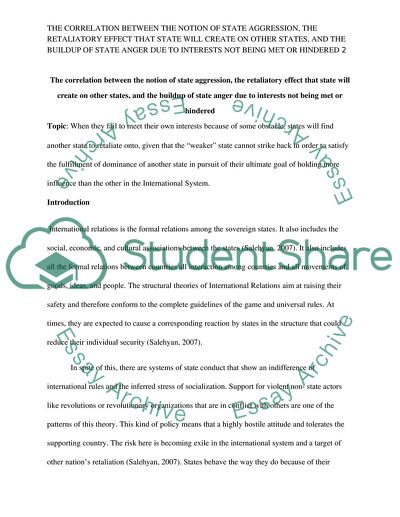Cite this document
(The Correlation between the Notion of State Aggression, the Research Paper, n.d.)
The Correlation between the Notion of State Aggression, the Research Paper. Retrieved from https://studentshare.org/law/1798942-the-correlaton-between-the-notion-of-state-aggression-the-buildup-of-state-anger-due-to-interests-not-being-met-or-hindered-and-the-retaliatory-effect-that-state-will-create-on-other-states-international-relations
The Correlation between the Notion of State Aggression, the Research Paper. Retrieved from https://studentshare.org/law/1798942-the-correlaton-between-the-notion-of-state-aggression-the-buildup-of-state-anger-due-to-interests-not-being-met-or-hindered-and-the-retaliatory-effect-that-state-will-create-on-other-states-international-relations
(The Correlation Between the Notion of State Aggression, the Research Paper)
The Correlation Between the Notion of State Aggression, the Research Paper. https://studentshare.org/law/1798942-the-correlaton-between-the-notion-of-state-aggression-the-buildup-of-state-anger-due-to-interests-not-being-met-or-hindered-and-the-retaliatory-effect-that-state-will-create-on-other-states-international-relations.
The Correlation Between the Notion of State Aggression, the Research Paper. https://studentshare.org/law/1798942-the-correlaton-between-the-notion-of-state-aggression-the-buildup-of-state-anger-due-to-interests-not-being-met-or-hindered-and-the-retaliatory-effect-that-state-will-create-on-other-states-international-relations.
“The Correlation Between the Notion of State Aggression, the Research Paper”, n.d. https://studentshare.org/law/1798942-the-correlaton-between-the-notion-of-state-aggression-the-buildup-of-state-anger-due-to-interests-not-being-met-or-hindered-and-the-retaliatory-effect-that-state-will-create-on-other-states-international-relations.


